Cystic fibrosis is a hereditary illness that mainly impacts the respiratory system and digestive tract. It results from gene mutations that we inherit. The patient's body overproduces mucus, leading to health issues in areas with mucous glands.
Cystic fibrosis is a disease we inherit with an abnormal gene mutation. If both parents are carriers of the defective gene and pass it on to a child, the child is born with the disease, but not every subsequent child of parents carrying the abnormal gene will be affected.
The patient's body produces excessively viscous mucus, which causes disorders in all organs with mucous glands (mainly in the respiratory, digestive, and reproductive systems). Cystic fibrosis is a disease that affects the whole body. Still, its main symptoms are chronic lung disease and insufficient production of pancreatic enzymes, which can lead to problems with digestion and absorption. People with cystic fibrosis often have sweat that contains higher levels of chlorine and sodium than usual.
Respiratory symptoms include:
Some of the gastrointestinal symptoms that occur in about 75% of patients are:
Some other symptoms include:
Parents must take any concerning symptoms in their child seriously and not underestimate their significance. If your kid has chronic or recurrent respiratory tract infections with retention of secretions in the respiratory tract, abdominal pain, diarrhea, fatty stools, and insufficient weight and height gain, contact your doctor as soon as possible.
It is also worth remembering that cystic fibrosis symptoms develop in stages and usually require a scheduled medical consultation.
Cystic fibrosis is a disease that requires the involvement of more than one specialist. In the beginning, you should consult your child's ailments with a pediatrician who, if necessary, will refer your child to specialist tests. If your kid is diagnosed with cystic fibrosis![]() , you must not forget about regular check-ups. However, in situations where the symptoms of the disease worsen, an urgent medical consultation is required.
, you must not forget about regular check-ups. However, in situations where the symptoms of the disease worsen, an urgent medical consultation is required.
In addition, if your child is losing weight or becoming tired quickly between visits, the scheduled check-up should be expedited as much as possible.
This test is performed in the hospital – usually during the first year of a newborn's life. Thanks to such early diagnosis, it helps to diagnose cystic fibrosis early.
A small amount of blood is collected from the newborn to test for cystic fibrosis. The sample is then sent to a laboratory to check for disease markers. If the values are high, it may suggest cystic fibrosis, and further testing may be recommended for a final diagnosis.
Newborn screening![]() is not the only way to diagnose cystic fibrosis. Pediatricians may suspect this disease in a child if they observe symptoms characteristic of cystic fibrosis. In this case, you must perform the sweat test – testing the concentration of chlorides in the child's sweat.
is not the only way to diagnose cystic fibrosis. Pediatricians may suspect this disease in a child if they observe symptoms characteristic of cystic fibrosis. In this case, you must perform the sweat test – testing the concentration of chlorides in the child's sweat.
The sweat test![]() consists of stimulating the sweat glands to work. Then, absorbent tissue paper is applied to the skin of the forearm. The child engages in an activity that will cause sweating, e.g., running in a warm room. The doctor diagnoses cystic fibrosis if the test shows abnormal and high chloride levels in the child's sweat twice. To confirm this diagnosis, genetic blood tests should be performed – this will help determine the specific genetic mutation for this disease.
consists of stimulating the sweat glands to work. Then, absorbent tissue paper is applied to the skin of the forearm. The child engages in an activity that will cause sweating, e.g., running in a warm room. The doctor diagnoses cystic fibrosis if the test shows abnormal and high chloride levels in the child's sweat twice. To confirm this diagnosis, genetic blood tests should be performed – this will help determine the specific genetic mutation for this disease.

Confirmation of cystic fibrosis does not end the testing process. When cystic fibrosis is diagnosed in a child, the functioning of the respiratory and digestive tracts should be assessed. Doctors use various tests for this purpose. For example, a spirometry test (that checks the correct functioning of the lungs) may be performed several times a year.
Due to the course of cystic fibrosis, detecting possible infections in your child as early as possible is essential. Therefore, bacteriological tests are performed using the secretion coughed up by the child. It is not uncommon for the secretion to be collected during bronchoscopy. Prophylactic sputum examinations are performed several times yearly in older children and adults.
To constantly monitor the current state of the airway, the doctor may decide to perform imaging tests of the lungs – like X-rays or computed tomography of the chest. In the case of diagnosed cystic fibrosis, specialists should also monitor the functionality of the pancreas and liver. For this purpose, the doctor uses laboratory blood tests and stool tests.
What does the daily life of a person suffering from cystic fibrosis look like? The way this genetic disease affects each patient may vary. Similarly, the severity of cystic fibrosis symptoms differs. On the one hand, cystic fibrosis can affect many organs and systems; otherwise, it will be mild, affecting only one selected organ.
In a standard and typical course of cystic fibrosis, there is impaired airway patency, pancreatic insufficiency, and elevated chloride levels in sweat.
The mucus produced in cystic fibrosis blocks the airways![]() where bacteria multiply. This, in turn, contributes to the development of further infections. Infections gradually destroy the lungs, which in the long term causes irreversible damage, such as pulmonary fibrosis.
where bacteria multiply. This, in turn, contributes to the development of further infections. Infections gradually destroy the lungs, which in the long term causes irreversible damage, such as pulmonary fibrosis.
Infections that attack the paranasal sinuses cause nasal polyps, purulent rhinitis, or recurrent pain in the head. The ducts of the pancreas are constantly clogged, which prevents digestive enzymes from reaching the intestines, and the body cannot fully absorb valuable nutrients from food.
In this case, women have irregular menstruation and may struggle with infertility. The disease is also linked with a higher risk of miscarriage than for a healthy woman. In men, infertility affects the majority of patients with cystic fibrosis.
Experts (including a pediatrician, pulmonologist, dietitian, physiotherapist, or psychotherapist) work together to help patients during treatment.
The main task of treating cystic fibrosis is to relieve its symptoms and make the discharge fluid thanks to drugs. The multiform course of cystic fibrosis requires differentiated and expensive treatment and the monthly cost of therapy, depending on the progression of the disease.
Treating respiratory tract symptoms is primarily the evacuation of dense and thick secretions from the respiratory tract and alleviating chronic bronchitis with antibiotics. To effectively clear the bronchi of secretions, physiotherapy of the respiratory system is utilized along with medication.
Physiotherapy![]() not only improves the patency of the bronchi but also destroys bacteria and inflammatory substances and delays the development of damage to the lungs and bronchi. Comprehensive treatment of cystic fibrosis in tandem with physiotherapy slows down irreversible changes in the respiratory tract.
not only improves the patency of the bronchi but also destroys bacteria and inflammatory substances and delays the development of damage to the lungs and bronchi. Comprehensive treatment of cystic fibrosis in tandem with physiotherapy slows down irreversible changes in the respiratory tract.
There is no single effective treatment for cystic fibrosis![]() . The listed methods or drugs only allow for prolonging the life of the patient, who still hopes that one day an effective remedy will appear. People with cystic fibrosis are susceptible to malnutrition – they require special diets. If they also have hypercapnia, their diet should be rich in protein and calories while minimizing carbon dioxide production. A high-fat diet can be beneficial in achieving this goal.
. The listed methods or drugs only allow for prolonging the life of the patient, who still hopes that one day an effective remedy will appear. People with cystic fibrosis are susceptible to malnutrition – they require special diets. If they also have hypercapnia, their diet should be rich in protein and calories while minimizing carbon dioxide production. A high-fat diet can be beneficial in achieving this goal.
Cystic fibrosis and other genetic diseases cannot be fully cured![]() . Treatment focuses on alleviating symptoms and extending the patient's lifespan.
. Treatment focuses on alleviating symptoms and extending the patient's lifespan.

The average life expectancy of a person with cystic fibrosis is over 40 years![]() .
.
Treatment of cystic fibrosis, as mentioned above, eliminates the symptoms but does not eliminate the cause of the disease. Treatment is aimed at stopping the progression of the lung disease. Diagnosing the disease early and starting treatment promptly increases the likelihood of extending the patient's life.
No prophylactic measures can be indicated to protect the patient against cystic fibrosis. It is a genetic disease – and as it is for today – medical knowledge has not answered how to prevent it.
Unless you can talk about any prevention, it's a specialist and point to the advantages of early detection of the disease, already in the mother's womb. In addition, parents of an affected child can benefit from genetic counseling.
Cystic fibrosis is a disease that immeasurably affects the quality of a patient's everyday life.
For example, it can lead to respiratory complications due to frequent infections. Individuals with cystic fibrosis are vulnerable to developing chronic bronchitis, sinusitis, and pneumonia![]() . Infections, even when properly treated, usually recur. These recurrent infections devastate the respiratory system, which weakens its efficiency, and in the later stages, pneumothorax, peripheral cyanosis, or hemoptysis may occur. Ultimately, complete respiratory failure is possible.
. Infections, even when properly treated, usually recur. These recurrent infections devastate the respiratory system, which weakens its efficiency, and in the later stages, pneumothorax, peripheral cyanosis, or hemoptysis may occur. Ultimately, complete respiratory failure is possible.
Complications in the case of cystic fibrosis also affect the digestive system![]() . Patients who struggle with this disease are at risk of chronic pancreatitis, chronic intestinal obstruction, or cirrhosis.
. Patients who struggle with this disease are at risk of chronic pancreatitis, chronic intestinal obstruction, or cirrhosis.
Cystic fibrosis also affects male fertility![]() because the disease obstructs the vas deferens. However, cystic fibrosis does not significantly affect female fertility.
because the disease obstructs the vas deferens. However, cystic fibrosis does not significantly affect female fertility.
Although cystic fibrosis cannot be cured, patients can remarkably improve their quality of life by following some basic guidelines in their daily routines. First, you should carefully monitor your child and consult a doctor about any disturbing symptoms at an early stage. In addition, if there have been cases of cystic fibrosis in the family before, you should also visit a specialist and explain your doubts.
If cystic fibrosis becomes a fact, it is worth following the doctor's recommendations and the rules below. Cystic fibrosis requires patients a particular responsibility and regular check-ups![]() . The dates of follow-up visits should depend on the current well-being, state of health, and possible complications caused by cystic fibrosis.
. The dates of follow-up visits should depend on the current well-being, state of health, and possible complications caused by cystic fibrosis.
It is significant to ensure that a patient suffering from cystic fibrosis undertakes physical activity![]() as often as possible. However, it would help if you exercised in moderation, and any new exercises should be discussed with your doctor or physical therapist to ensure they are safe and appropriate.
as often as possible. However, it would help if you exercised in moderation, and any new exercises should be discussed with your doctor or physical therapist to ensure they are safe and appropriate.
Activity that increases heart rate and strengthens muscles especially benefits people with cystic fibrosis. Recommended are: running, football, swimming or dancing. Not all sports are suitable for people with cystic fibrosis. These include activities involving high altitude (e.g., skiing) or lung pressure (e.g., diving).

When considering a new sporting activity, remember to discuss it with your doctor or physiotherapist first and consider how the sport will affect your daily life. It will be easier to stick to physical activity that is both well-chosen and enjoyable.
People living with a person suffering from cystic fibrosis should remember the importance of frequent hand washing, which can prevent infections![]() dangerous for the patient. In addition, the sick person must follow the guidelines of his or her attending physician and especially take care of the menu and daily diet
dangerous for the patient. In addition, the sick person must follow the guidelines of his or her attending physician and especially take care of the menu and daily diet![]() . The diet for cystic fibrosis is based primarily on ensuring the correct energy content of the menu and its proper balance in terms of nutrients.
. The diet for cystic fibrosis is based primarily on ensuring the correct energy content of the menu and its proper balance in terms of nutrients.
The overriding goal of a dietician taking care of a patient with cystic fibrosis should be to ensure the proper nutritional status of the patient. Malnutrition cannot be allowed. Permanent elements of nutritional therapy in cystic fibrosis include a high-energy, high-fat, and high-protein diet, supplementation of vitamins and minerals![]() , and the use of pancreatic enzyme preparations.
, and the use of pancreatic enzyme preparations.
It is also significant that a person with cystic fibrosis does not come into contact with cigarette smoke![]() . The patient should not smoke cigarettes; likewise, people around them should refrain from this addiction because cigarette smoke has a very adverse effect on the patient's already weakened lungs.
. The patient should not smoke cigarettes; likewise, people around them should refrain from this addiction because cigarette smoke has a very adverse effect on the patient's already weakened lungs.
It is also worth mentioning that cystic fibrosis is not a reason to give up vaccinations![]() .
.
Table of Contents
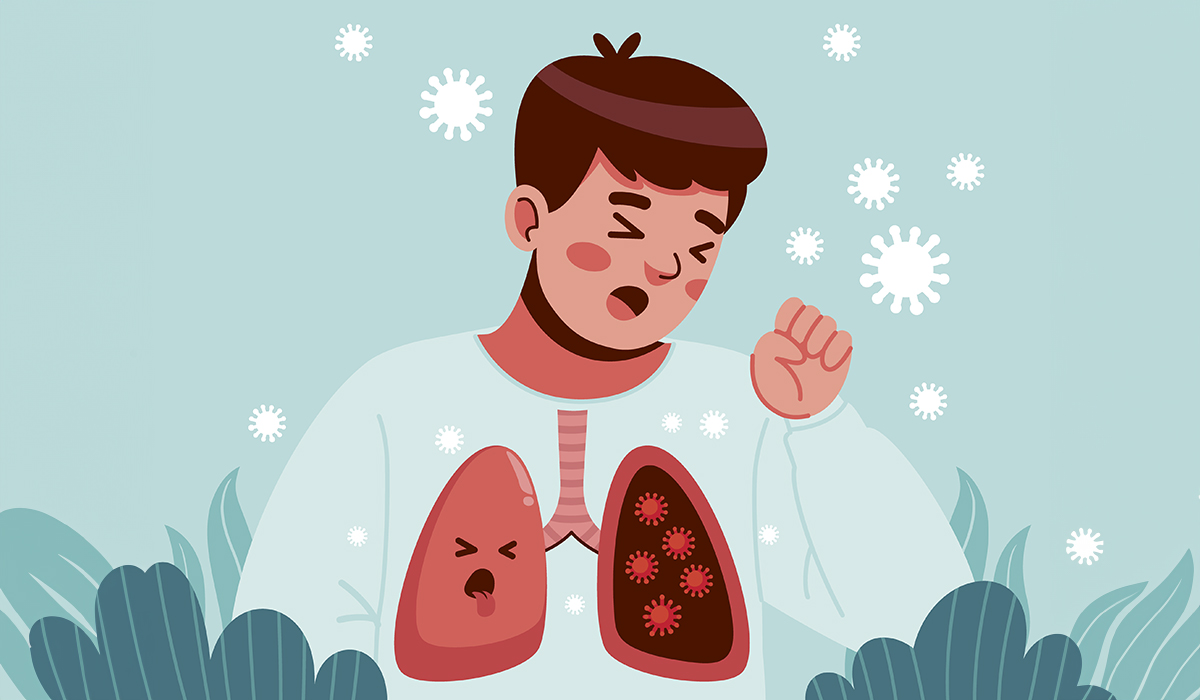
Lung Cancer begins in cells lining breathing entries, regularly starting with bronchial tubes or minor discuss sacs. It may be… read more »
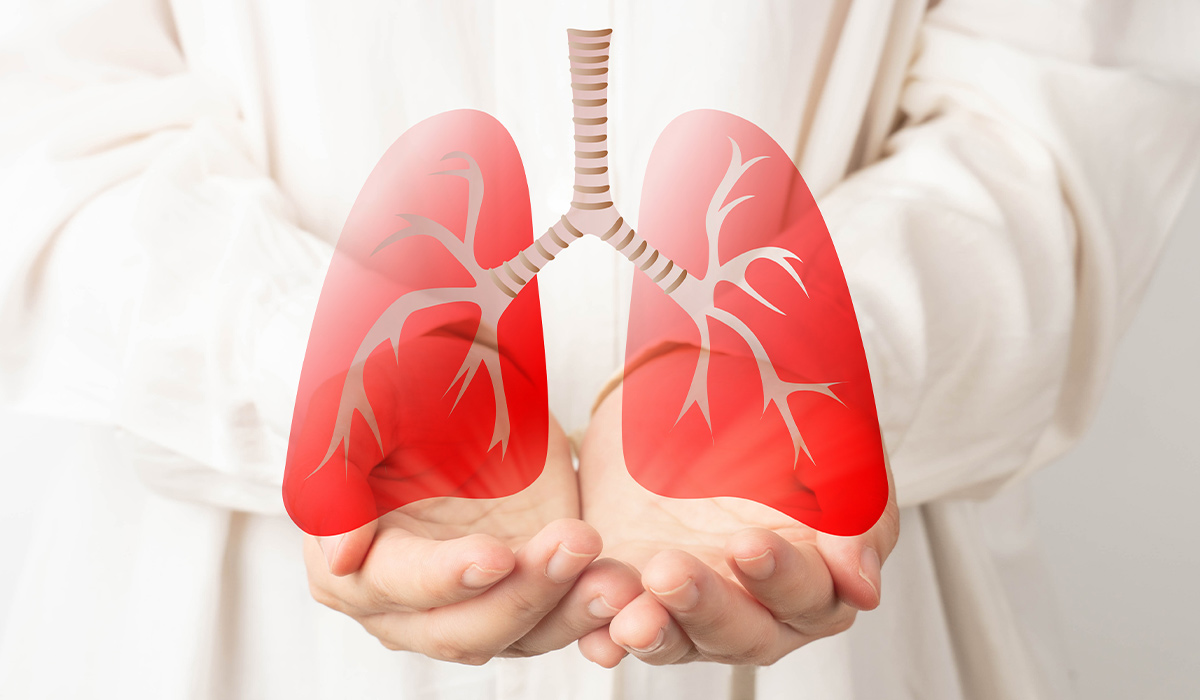
Chronic obstructive pulmonary disease, a condition commonly known as COPD, is the third most frequent cause of death in the… read more »
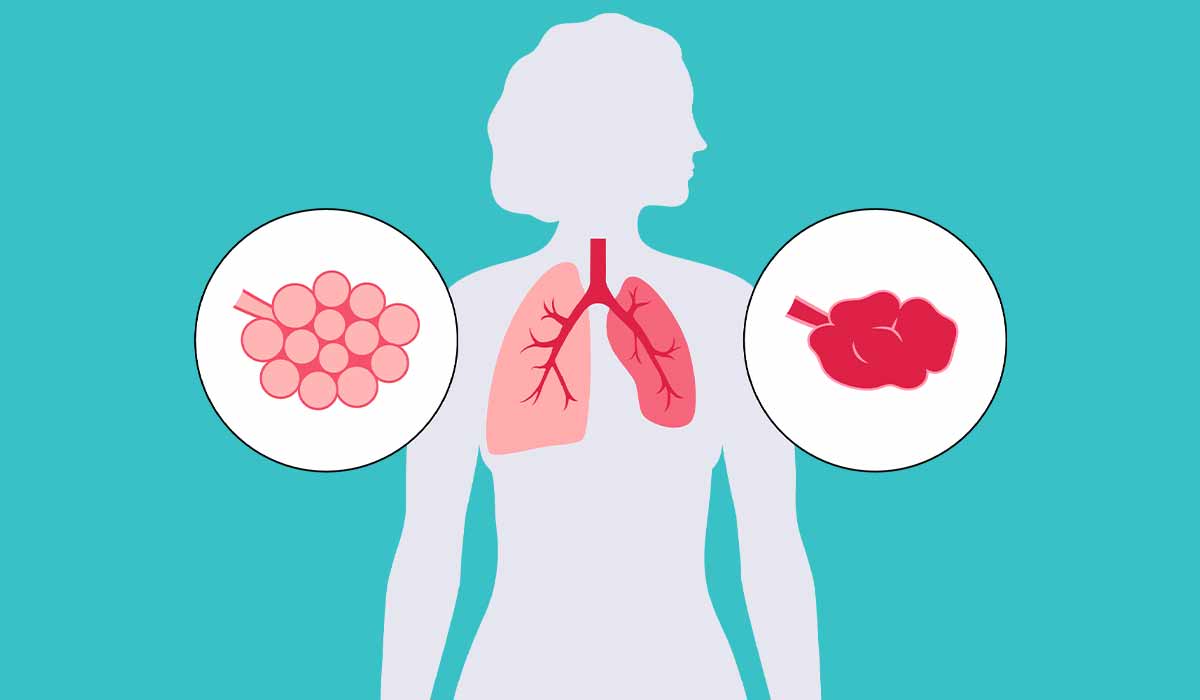
Atelectasis is a lung condition in which parts of the alveoli, tiny air sacks in the lung, lose air. When… read more »

Wheezing is a high-pitched whistling sound that occurs during breathing. What does it inform you about? read more »

A pulmonologist is a medical doctor who specializes in diagnosing and treating diseases of the respiratory system, which includes the… read more »
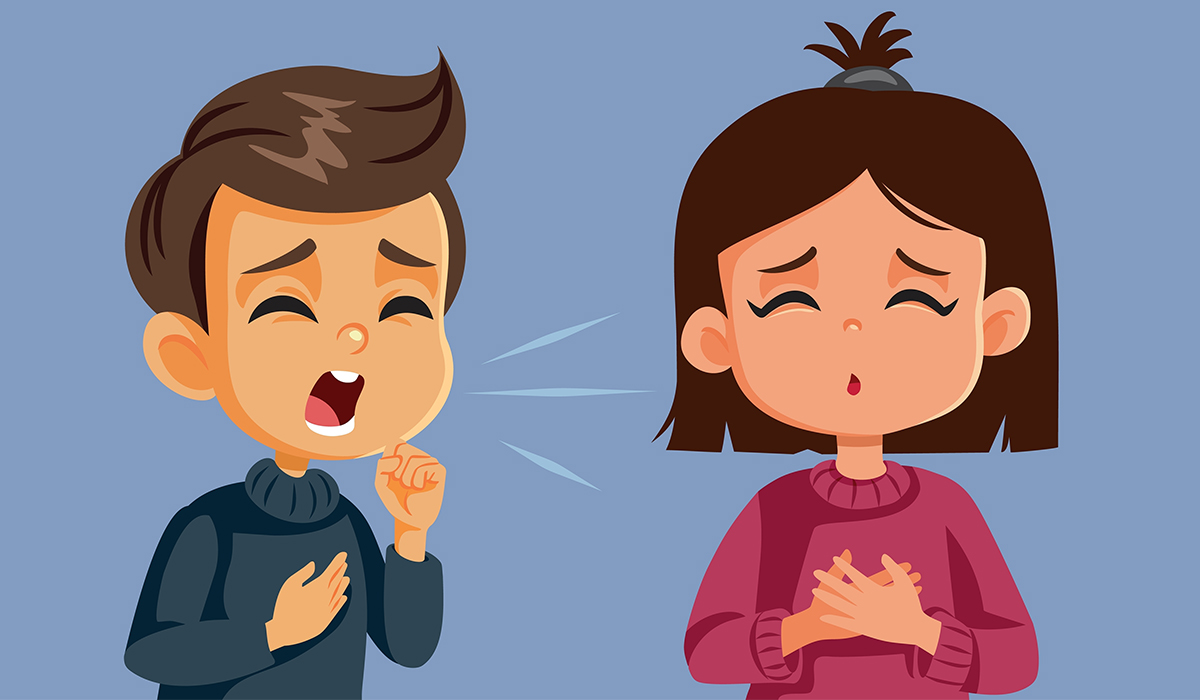
Cough is a natural, necessary reflex that protects the body from factors such as germs and pollens. When it is… read more »
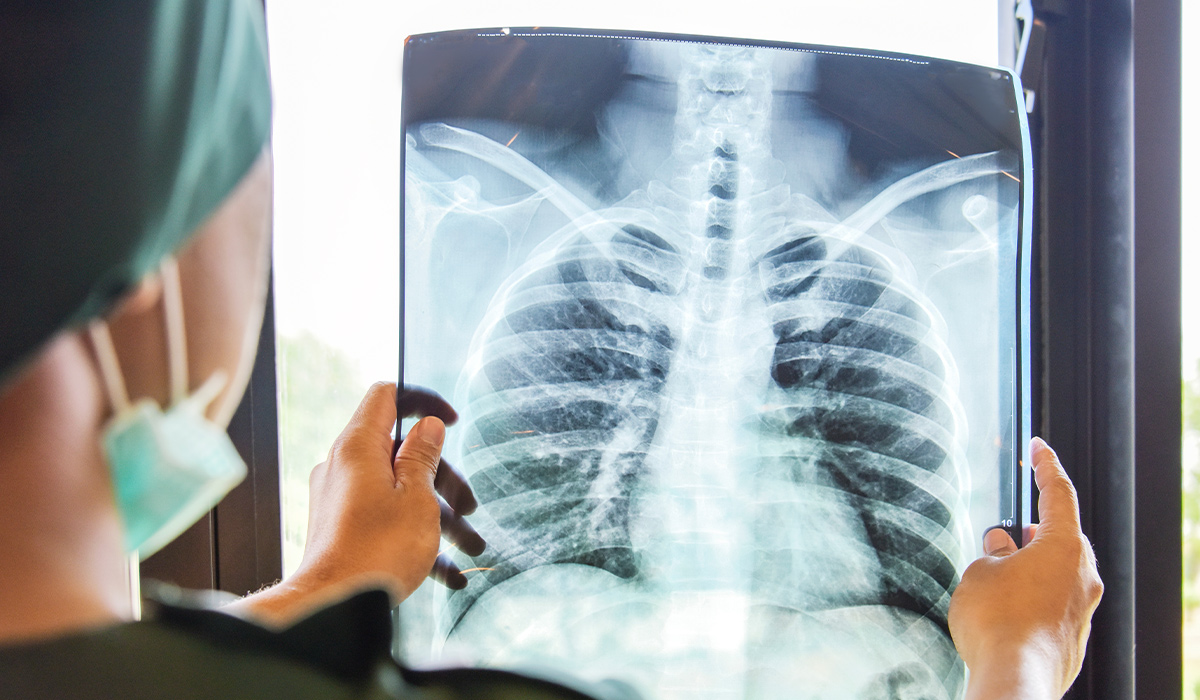
Pneumonia is a disease of the lower part of the respiratory system. It is most often caused by bacteria, but… read more »
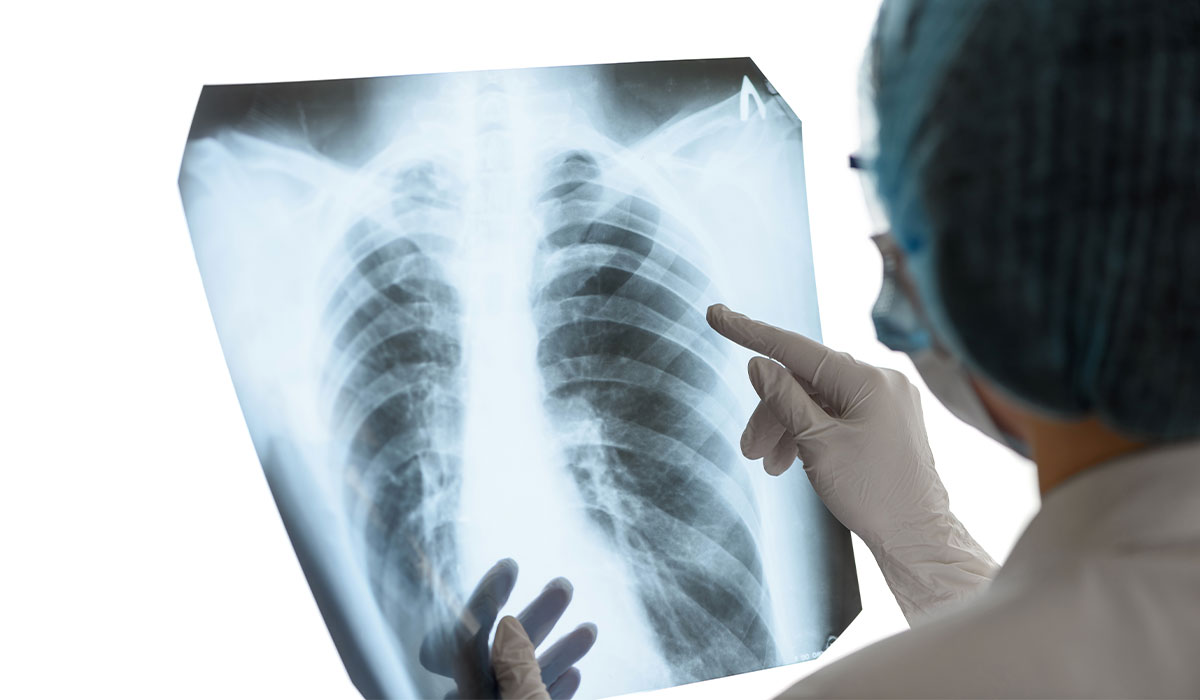
Pneumothorax is a condition that develops as a result of air entering the pleural cavity. What are the causes and… read more »
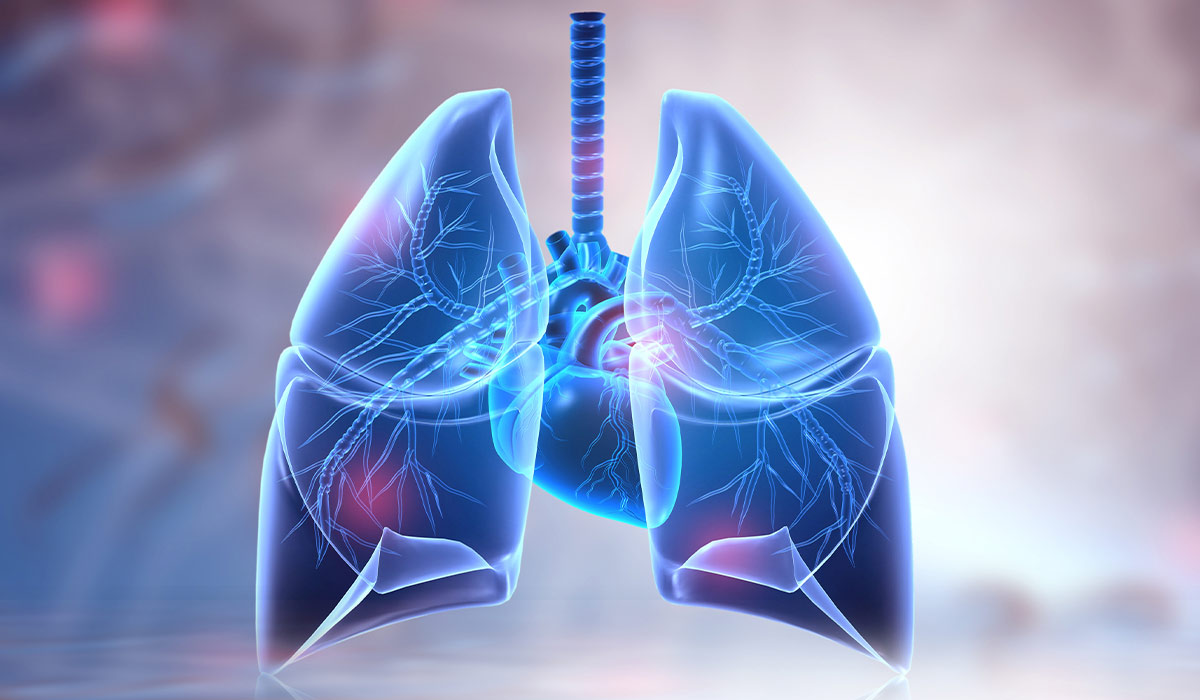
Hypercapnia is a condition in which the partial pressure of carbon dioxide in our blood is increased. This can be… read more »